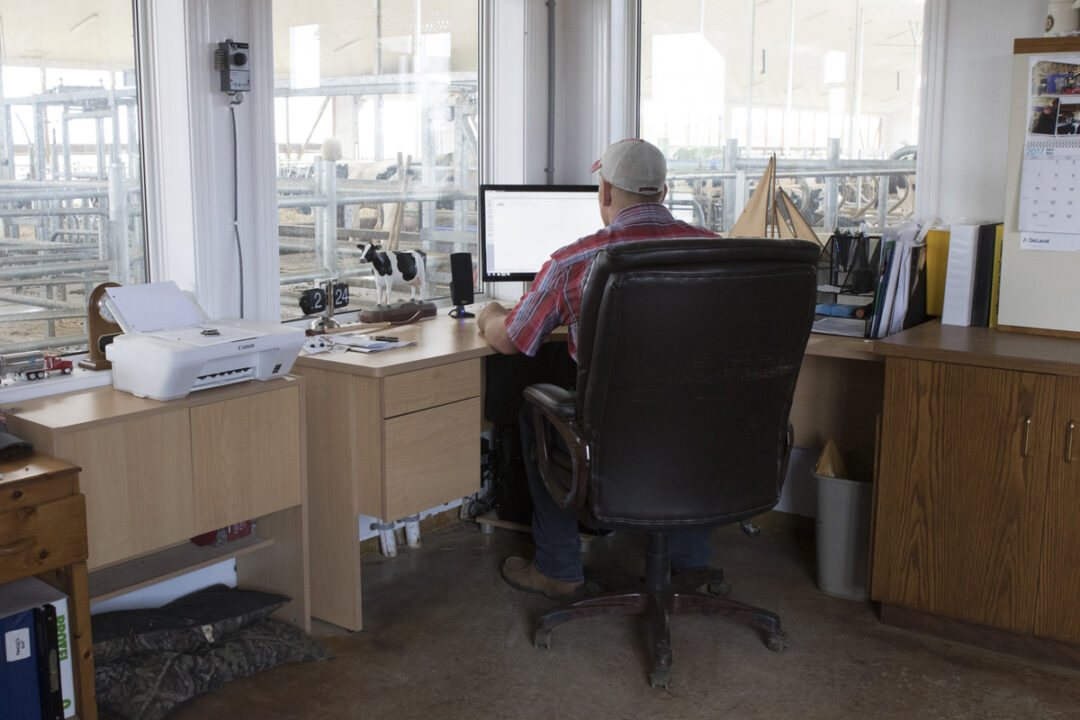We all find ourselves in situations where we need to have tough conversations. No one wants to deal with conflict, yet it's important to remember that productive conversations are still possible, even when it seems like neither side is willing to budge.
For farmers, hard conversations might involve banks, businesses, government agencies, neighbors or family members. Knowing what to say can be difficult when the farm's success depends on the outcome.
Agricultural mediators have seen these challenges firsthand. Trained agricultural mediators understand the industry and can facilitate conversations between parties to resolve their differences without taking a side.
Jenna Muller mediates farm disputes in California. In addition to being a lawyer, Muller also is an owner at Full Belly Farm, a 450-acre organic fruit and vegetable operation in Northern California. As a farmer, she knows the myriad challenges and opportunities facing family farms and agricultural businesses.
Muller says, “Conflict may be an unavoidable part of life, but it doesn’t have to be negative. When handled correctly, conflict can also be an opportunity for growth and understanding.” She has helped farmers resolve disagreements about organic certification, address property-line disputes with neighbors and helped family members find consensus about how to run the farm. “Sometimes,” she says,” the hardest part is just starting the conversation.”
Agricultural mediation programs exist across the U.S.
Agricultural mediation programs exist in 43 states across the U.S. Muller is one of two staff agricultural mediators for the California Agricultural Mediation Program (CALAMP). The head of the department of agriculture in each state certifies an entity to administer the mediation program, and the USDA provides funding support to make mediation free for farmers.
Since 1988, the programs have helped those in the agriculture industry resolve issues informally, without the transaction costs associated with the legal system. It's also confidential, so farmers can feel open to exploring all solutions.
Cara Cargill of the New Hampshire Agricultural Mediation Program became an agricultural mediator after 16 years of managing large horse farms and teaching horseback riding. She specializes in agricultural and environmental issues.
Cargill says a common issue that can benefit from mediation is farmer and neighbor or community member disputes. She says a mediator's job isn't to decide who's legally right or what to do next, but to encourage open discussion and leave the decision-making up to the parties involved.
"Many farmers are hesitant to engage with community members when these issues arise because they fear the situation will escalate,” Cargill says. “As mediators, we work with farmers to help them resolve these types of right-to-farm issues so they can let go of the stress they are carrying."
Matt Strassberg is an agricultural mediator and director of the Vermont Agricultural Mediation Program (VTAMP) who brings over 30 years of experience in environmental law and mediation to the work. He says farmers often ask if they will have to talk about their feelings during mediation and want to stick to business.
"Sometimes mediation focuses solely on making the best economic decision under the circumstances and has little to do with emotions or feelings," Strassberg says. "More often than not, we find that the substantive issue was stressing the relationship between the parties. Once we help the parties find some common ground, they can reconnect with one another as business partners, neighbors or community members. Having that neutral person, the mediator, there to moderate the discussion and ask good questions makes a difference.”
Tips for having productive conversations
Agricultural mediators say farmers can learn how to have tough conversations and feel good about them by following these tips.
Listen with curiosity
Before you share your point of view, listen to understand the other person. Try saying: "Can you tell me more about why this is important to you? I'd like to understand more about what you're trying to tell me, so I don't fill in the blanks with something that's not true."
Playback and reflect
People like to know that you understand them. Be sure you understand the other person's concerns. Try saying: "It sounds like you're worried about [insert their concerns]. Am I getting that right?"
Acknowledge
Be sure you acknowledge the issue's impact on them. Show that it's important to you to solve the problem. Try saying: "I see how this has affected you. It's important to me to try to resolve this."
Share your perspective
Once someone feels heard and acknowledged, they have more capacity to understand what you are going through. At this point, you are not sharing solutions yet; you're sharing what you're going through. Try saying: "The impact of this issue on me has been…"
Connect and problem-solve
If you've taken the time to understand someone else, they will probably have a better ability to understand what you want to say. Having felt heard, they are more likely to listen to you. Now you can problem-solve together. Try saying: "It sounds like we both want to see this handled. Here's something I can do. What do you think?"
It takes time to learn new conversation skills
Mary Campbell of CALAMP says to remember it's OK to make mistakes.
"Don't be afraid to give these tools a shot. It's a practiced skill, and people will always appreciate your effort and understanding," Campbell says. "It's better to try and to take the time to hear each other."
To practice your skills, Campbell suggests interacting with people who aren’t close to you.
"The most challenging place to practice is at home, with family or close friends. Instead, practice with someone who may have a different viewpoint from you on a topic, but with whom you don’t have a strong emotional connection. Give yourself permission to learn and keep trying. It is not win or fail; it is win or learn," Campbell says.
If you need more assistance with an upcoming conversation, your state mediation program may be able to help. The first step is to contact an agricultural mediator to discuss your unique situation. Click here to find your state mediation program.
The list of agricultural issues eligible for free mediation varies by state. Free mediation is often available for debt issues, farm loans, family farm transitions, farmer-neighbor disputes, land and equipment leases, organic certification, pesticide issues, USDA farm and conservation programs, USDA rural development loans and wetlands determinations.










